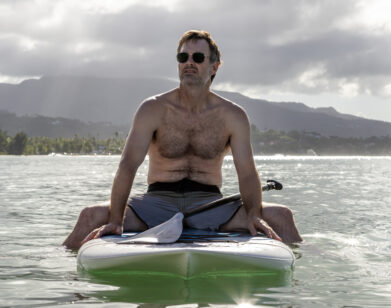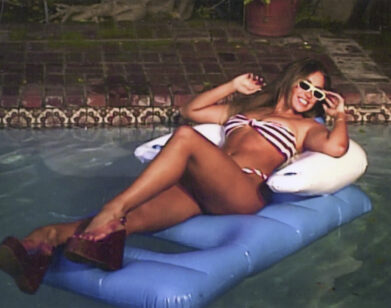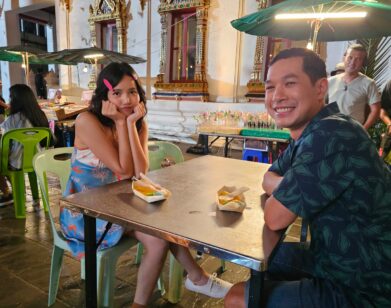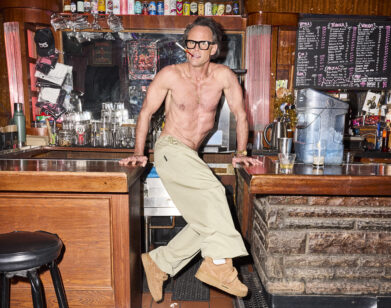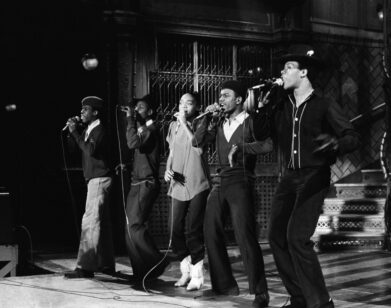FINALE
How Edi Patterson Turned Judy Gemstone Into One of Television’s Funniest Characters
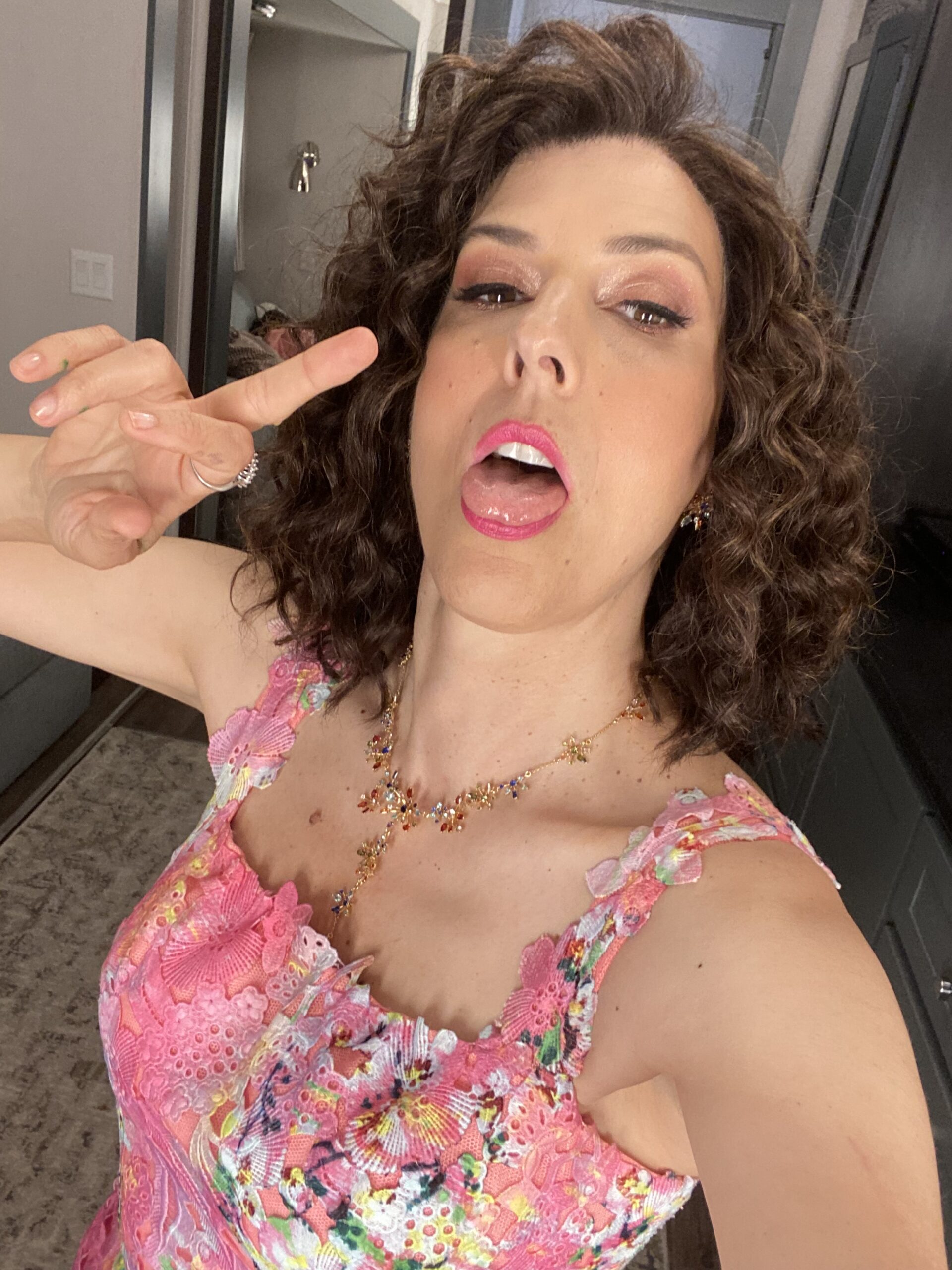
Photos courtesy of Edi Patterson.
In The Righteous Gemstones, chaos reigns supreme–and sitting in the messy center of it all is Judy Gemstone, the hilariously unfettered, foul-mouthed and emotionally volcanic daughter of televangelist royalty, played by Edi Patterson. The Gemstones are the kind TV family that make you grimace and root for them in the same sweep, and with the help of a flamboyant wardrobe and a very big wig—which Patterson describes as a character all on its own—Judy stands out amidst the dysfunction, demanding to be seen and heard. This past weekend, the HBO show wrapped after four successful seasons. To tie the knot, Patterson sat down with her co-star, Tim Baltz, to reflect on playing one of TV’s most bombastic and charming characters: “I hope that she can embolden people when they need a laugh or some sneakiness,” she explained. “I hope she can Braveheart some bitches.”
———
TIM BALTZ: Are you in L.A. now?
EDI PATTERSON: Yeah, I’m at my house.
BALTZ: Oh, nice. I thought it might be fun for us to start at the beginning.
PATTERSON: Yeah.
BALTZ: Before we get into the particulars of you crafting Judy, what do you even remember about the pilot? It was in 2018, which feels like three lifetimes ago.
PATTERSON: Yeah, it does. I definitely remember us all living at the Hyatt house. There was a point where I had made the massive mistake of living there for six months when we were writing and production was like, “We have this as an option if you want to just live here.” And I just didn’t know enough to say, “Oh, I’m going to need an actual place to live.” So I lived there for six months and I was feeling madness, like that fan in the bathroom never turns off and everyone had to get evacuated once ’cause I was trying to make a Beyond Burger on that stove and the alarm started going off. I had to watch people file out of the hotel. It was the worst.
BALTZ: Did you go downstairs, eating your Beyond Burger, mouth full just like, “Sorry…”?
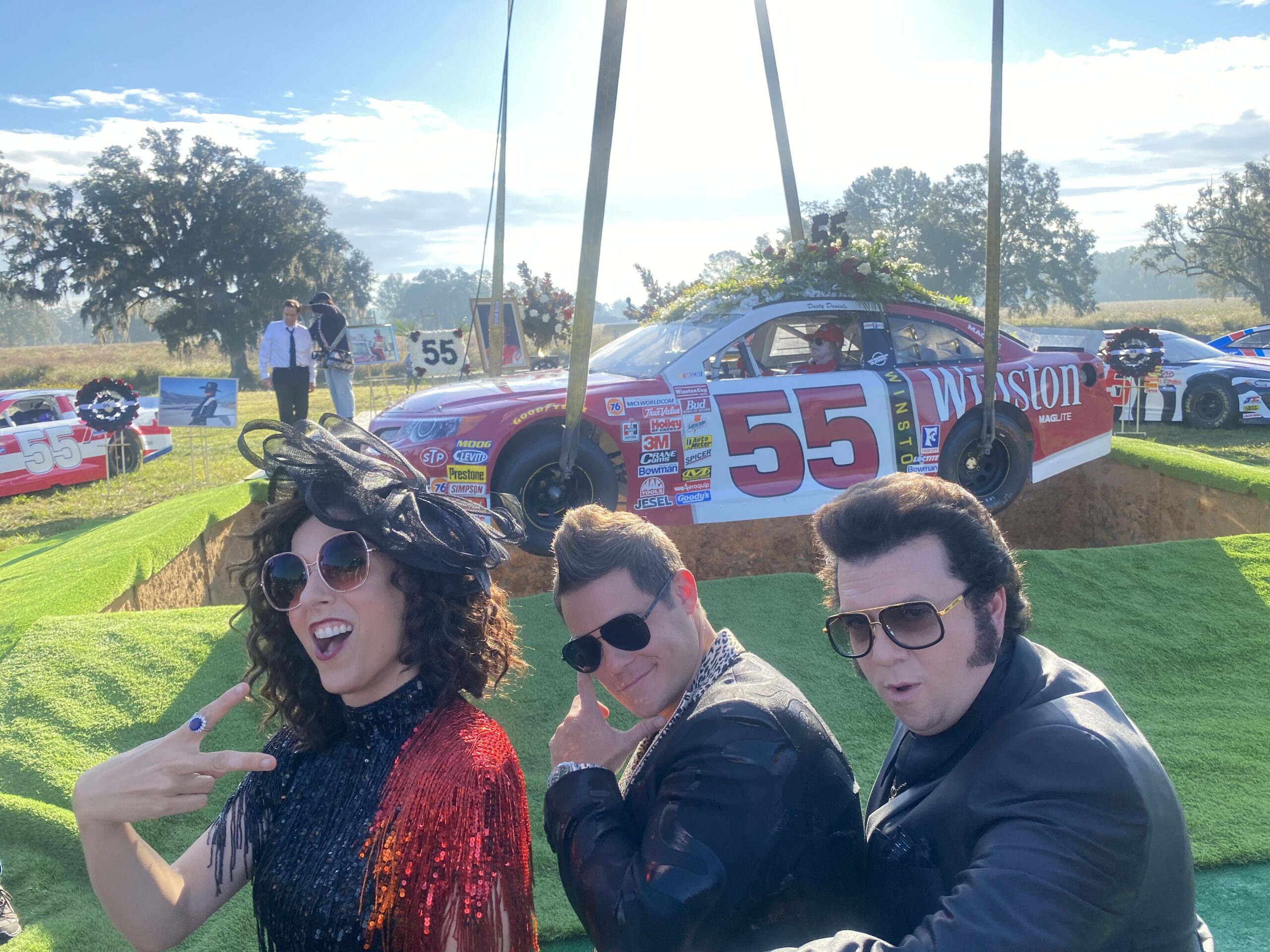
PATTERSON: “Oh, sorry suckers.” I don’t know, just being there by myself had gotten so exhausting. So to be there with all of you guys, it was like a whole other world. Then the house became a magical place.
BALTZ: I still remember us pulling tarot cards in Cass’s room.
PATTERSON: Yeah, dude.
BALTZ: But in terms of crafting the character, I know you had a prior relationship with Danny because of Vice Principals, so you knew that the chemistry was there, but when he brought you into this were you pitching the character to him? Where do you first start to see Judy Gemstone take shape?
PATTERSON: Well, before I ever read a pilot, I knew that I would be playing his sister Judy and I knew that she’s the middle kid, and that’s about all I knew. Then some stuff started to become apparent. The fact that in the pilot, even doing that baptism, it’s just Eli and Jesse and Calvin, and I’m having to greet them on the airplane, I could feel the fun frustration of all that. For me, that’s when I really started finding it ’cause I started feeling really connected to that feeling in Judy of like, “Oh, it’s not going to fucking go down like this.” And it was fun to rail against being sidelined. That’s definitely in the mix for her, a battle to be seen and respected and thought of as good as or better than her brothers.
BALTZ: It’s such an iconic look in the pilot when it’s you alone on the tarmac and they’re getting off the private jet. The visual is immediately clear. You’re like, “I know who this family is, I know what their dynamics are, I know where the conflict is.” But you go into writing the season. Was this your first time in a writer’s room?
PATTERSON: Yeah, technically. I’d done tons of sketch writing stuff at The Groundlings and—
BALTZ: And the stint on SNL, too.
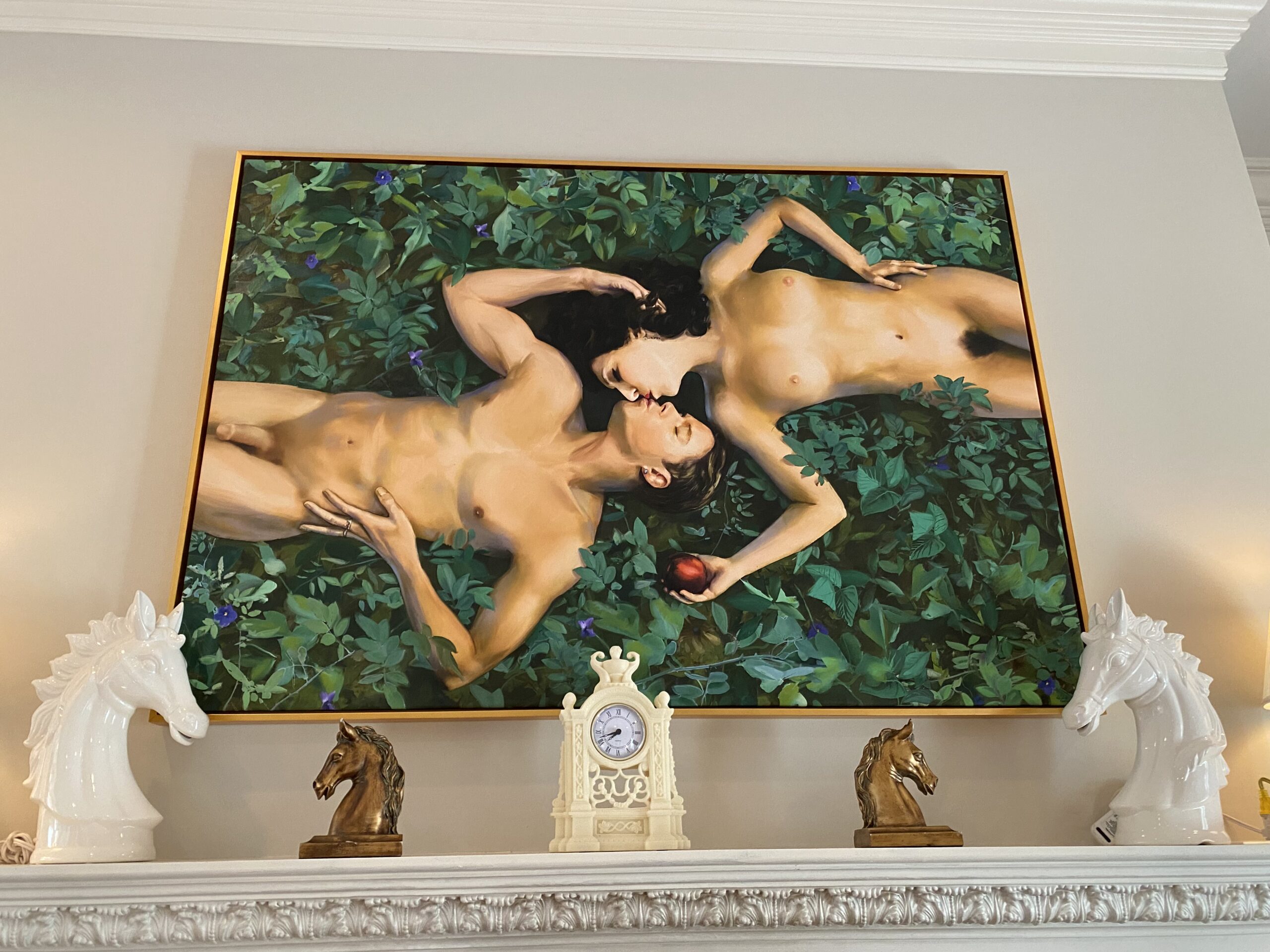
PATTERSON: Yeah, a little guest writing stint on SNL just for two weeks. And then right when Mikey Day and I got out of The Sunday Company at The Groundlings, we had done this sketch show with Damon Wayans. So I’d done some stuff, but never a full-on TV show, so this was my first.
BALTZ: It’s interesting when you talk about sketch comedy, especially at Groundlings, because you have these recurring characters that you can bring back once or twice a year where you live in their skin. How did you take those skills and put them into a six-month long madness immersion at the Hyatt House, and then go to living in the skin of this character in a writer’s room?
PATTERSON: Some of those sketch writing skills for sure apply, and then I left this part out—after Vice Principals, Danny and I wrote a movie together that I still think we’ll end up making at some point. But we had written it and then from the studs rewrote the whole thing in two weeks, and that was a really cool lesson in how to just crank it and change all the things and not be afraid to throw it all out. Writing that movie with him really helped me go like, “Oh, right, it can get better with every single tweak.” There was a minute right at the beginning where we were paired up writing episodes and my partner in that moment was Jared Hess, who wrote and directed Napoleon Dynamite. He wrote with us on the first season, so he and I would send things back and forth to each other. For part of it I was in Boston doing Knives Out, and I would sit in the lobby for hours and hours and hours. That lobby is also where I wrote that Outback Steakhouse monologue.
BALTZ: Oh, it is?
PATTERSON: Yeah.
BALTZ: Wow. I want to see pictures of that lobby now. How much do you think Judy Gemstone was already inside you? Was she waiting to come out at a certain point, or was this something that you saw represented in the material you were looking at and you said, “Oh, I can slip into that skin.”
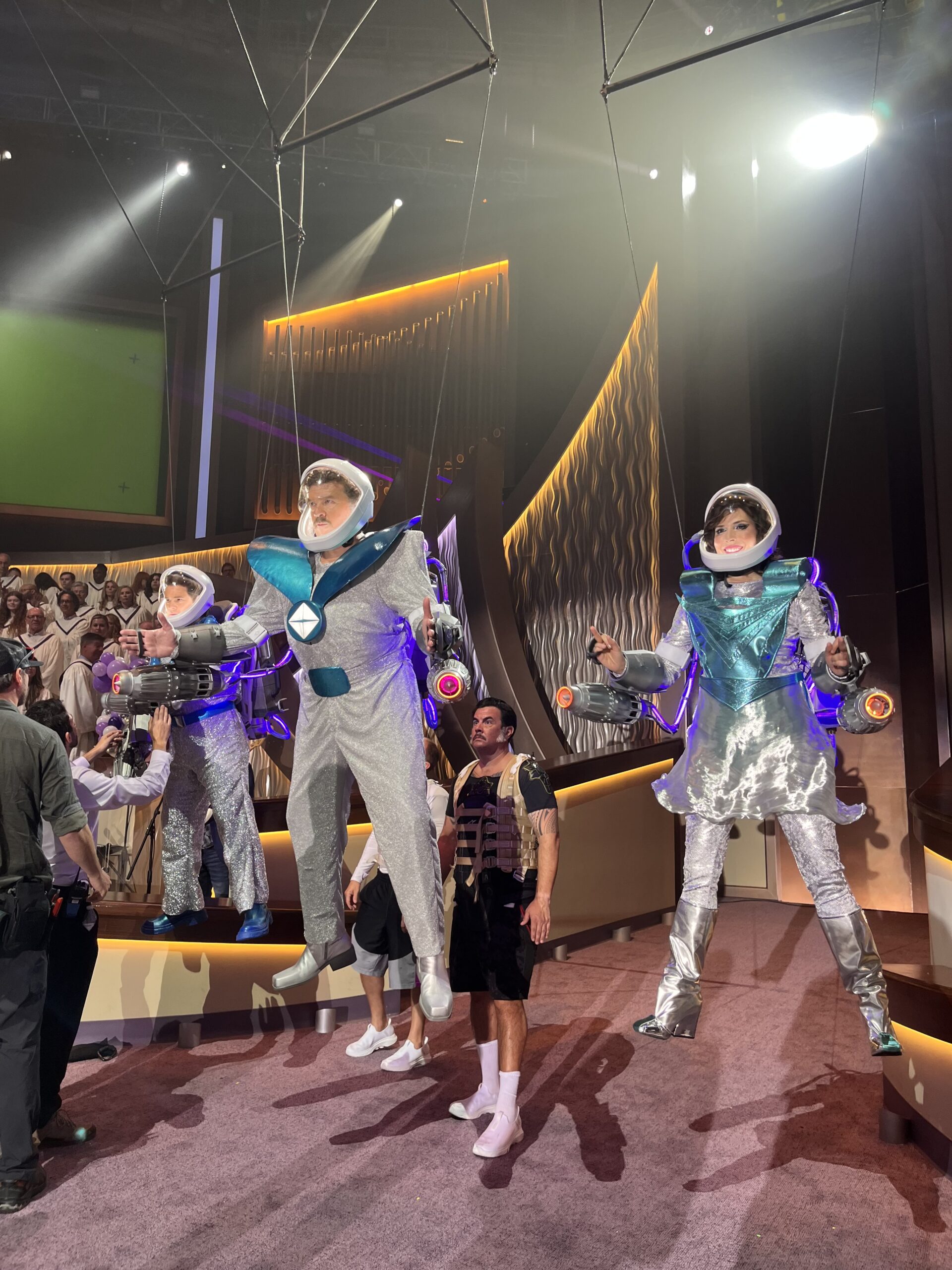
PATTERSON: She always, always felt like just an unlocking inside of me. Just like, let the bitch out, let her run. Honestly, not to get too woo woo, but I think she’s in all of us. At the core of it there’s just a desire to be seen and to be able to let it rip. And that was the fun part, just to take off any filter I’d ever had, any sense of even what’s right and wrong and how to treat people and just go from a very animalistic place. It always felt like a very feminist place to me. Like, let this chick be as fucked up as any guy has ever been in any TV and movie. Let her be that complicated and weird and feel her feelings and apologize later.
BALTZ: The wardrobe played such a huge part in the show.
PATTERSON: Huge.
BALTZ: Sarah [Trost] and Christina Flannery are both geniuses in their own right. Since you’re crafting the character so much in the room, what do those conversations start to look like?
PATTERSON: When I had a cursory conversation with Sarah, I still had too many ideas about Judy. I was like, “Yeah, I think her vibe is really cool. It’s really vintage and funky.” It just unlocked a part of my brain. And the fact that it would go from churchy skirt suit to ice skater uniform was like, “Oh yes, of course.” Also, my curly hair was huge with her. It even would inform how my body moved and how my head would jerk. Sarah’s vibe was more about Judy’s evolution as she got more seen at the church and more in power, and it morphed into actual vintage Gucci and Thierry Mugler.
BALTZ: Right, right. Was there anything particular that you were doing to tap in when it came time to actually film it and step into the literal shoes?
PATTERSON: Weirdly, it was from the second I had the hair. Initially, when we did that pilot, they curled my hair.
BALTZ: I remember it, but it was too humid, right?
PATTERSON: It was too humid. I would say the hair was major. But yeah, that morphed into a wig. Bryan Moss and Q. Prescott, they were the people who did my hair each season, and we even had a name for her. The wig was a third character, and once she was fused onto me, then I felt like, “Oh yeah, I can improvise all day. I can improvise for a year as Judy at this point.” And the more specific that I can make something in my voice, the better it’s going to be. The more I stop thinking about what anyone else might want or what anyone else is doing, I just go exactly toward what I think is funny and I’m open to the moment. To boil it down: Trust your gut.
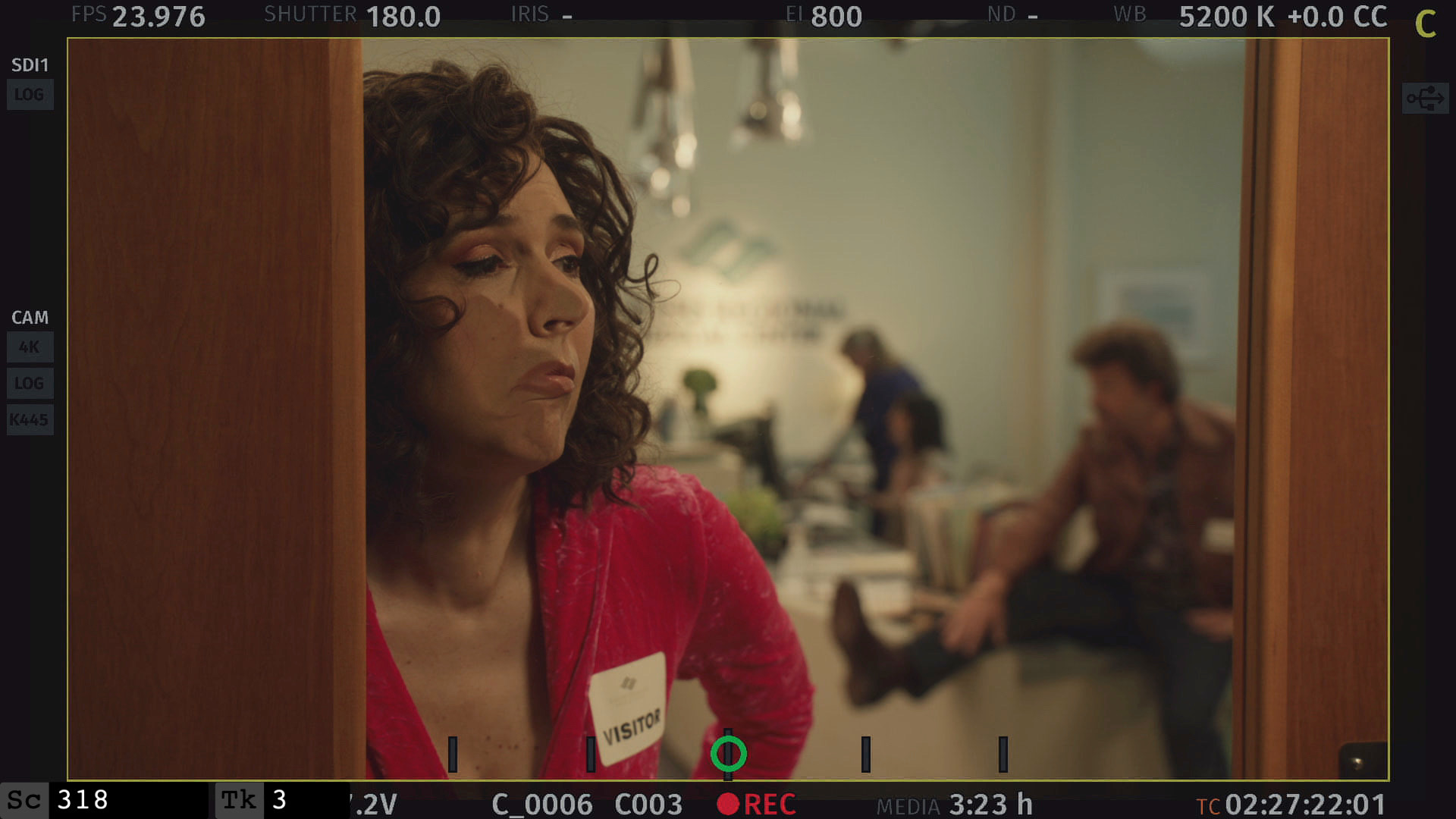
BALTZ: There is one dimension of Judy that I really want to touch on. I’ve got to shout out Emma Shannon, who plays Young Judy, and comes in and season one and kills it from the get-go without even having really a reference. It adds such an unusual, unique, dimension to the show. What was it like to see that represented on screen, a younger version of yourself that’s so accurate?
PATTERSON: Watching her is literally watching magic. I don’t know exactly how she’s doing it, because they’re not just doing a loose impression at all. They’re literally getting at a soul. There was really no collaborating with Emma. Anytime I saw her I would fawn all over her, probably to the point of making her uncomfortable.
BALTZ: Same. Young Judy says some of the raw stuff, and because you’re seeing it come out of the mouth of such a seemingly innocent person, then all of a sudden it’s like “Boom, tornado!” Was there ever a line that made you blush, even though maybe you wrote them yourself?
PATTERSON: I mean, I wrote a lot of stuff for us between Judy and BJ that would make me blush. But watching you say it would break me.
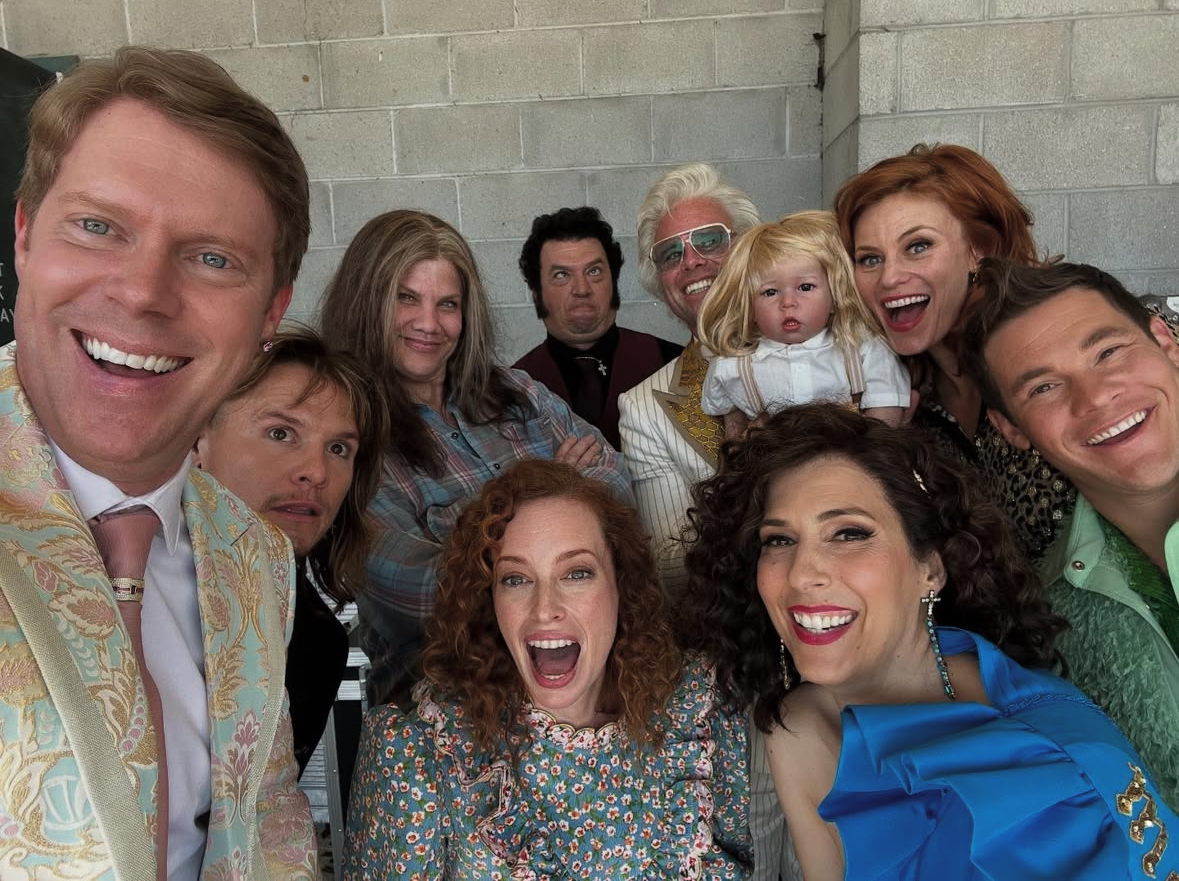
BALTZ: Like what? “Played out mother pussy?”
PATTERSON: Like when we meet up in that guard shack and you tell me, “Save that piss for your chest.” I wrote that, but watching it come out of your mouth is so funny to me. I mean, I do think Judy and BJ are full freaks and up for anything. But if it gets very specifically graphic, like sex stuff between us, that always would make me laugh.
BALTZ: What do you think makes the show feel different from anything else on TV?
PATTERSON: Dude, I think it’s the chemistry with all of us. It’s like you almost get that Sopranos thing where you go, “These people are doing insane stuff, but I want to hang out with them.” I think some kind of alchemy happened where the Gemstones are still alive in a world, and it’s a world that is so hilariously aspirational. It’s not like I want to be them, but it does seem fun to hang out in that world. And I would say that we genuinely dig each other, and I think you can feel that energy.
BALTZ: Yeah, I was thinking about that the other day. What are you going to miss the most about it?
PATTERSON: Coming together with people. We would get in those moments, say a church lunch or whatever, where you really and truly could let it rip and crazy, awesome, creative energy would start to emerge. So it’s the people and creative magic that would happen.
BALTZ: When did it hit you that it was the last season?
PATTERSON: I feel like when we were doing the fourth season, there was a vibe that it could be, but I didn’t know that it was for sure the last season until some point in January. I feel like we all had a vibe, hence us all literally flooding the upstairs of Jason’s steakhouse with our tears when they yelled, “Cut.” How about you?
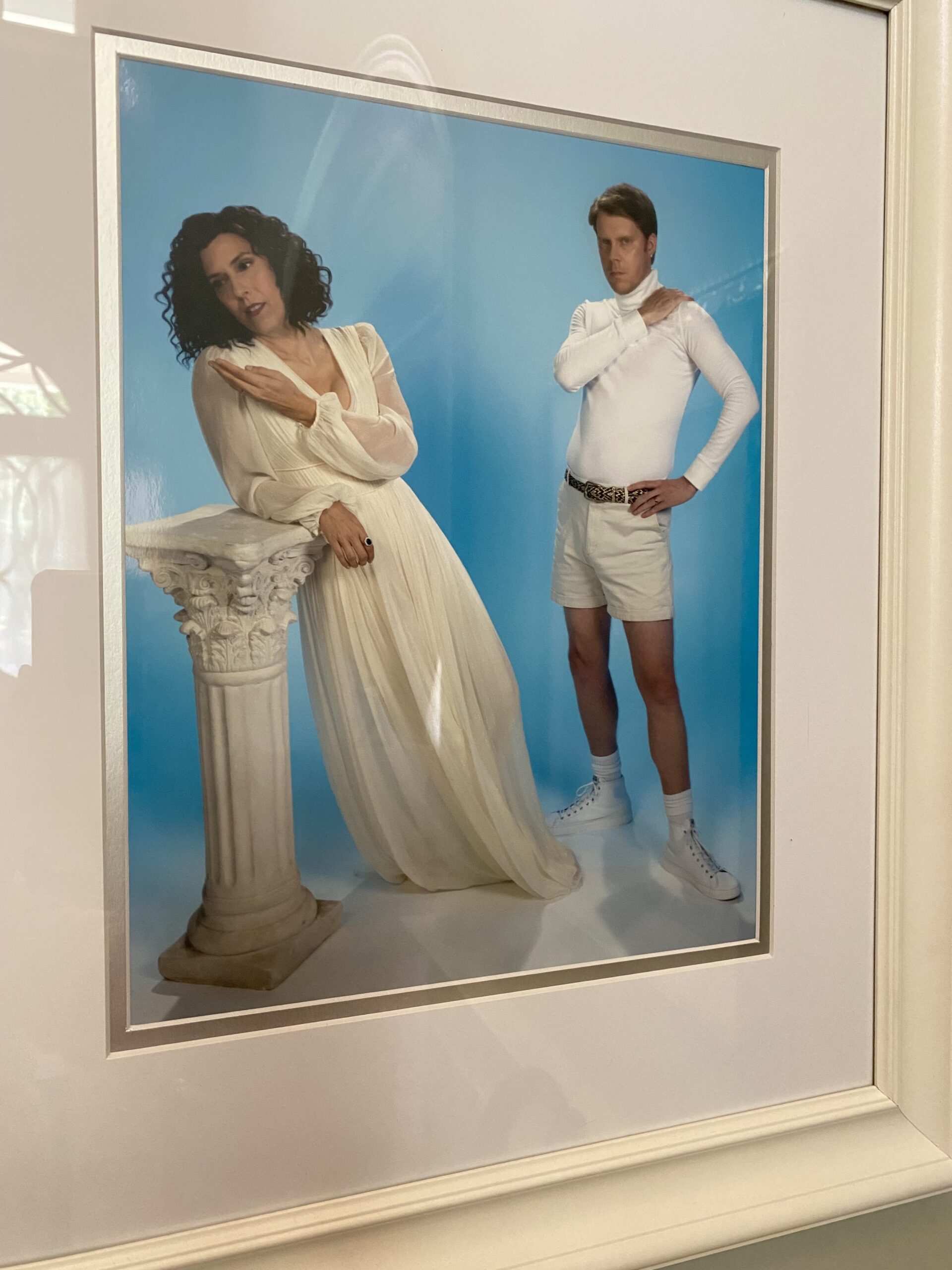
BALTZ: I think it was probably the second-to-last day or the last day. That last day I just had a strange calm wash over me. It all felt like the end of that movie Big Fish, where you’re like, “They’re all here.” And then Danny gave that speech and I was like, “Oh, all right. Just try to breathe until the tears start flowing.”
PATTERSON: Oh, yeah.
BALTZ: Here’s a good final question for you: what do you want people to remember most about Judy?
PATTERSON: I want people to be able to use Judy as a battle cry, if you will. I want them to be able to look at her going for it and go, “Fuck you. That’s what I want to do, that’s what I want to say. Maybe it didn’t work out, but she said it.” I hope that she can embolden people when they need a laugh or some sneakiness. I hope she can braveheart some bitches.
BALTZ: Like she so famously says: “I’m a gemstone too, daddy.”

